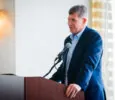Resource Library
Your gateway to resources for and about gifted students.
Tips for Parents: Parenting While Gifted: An Interactive Workshop for Exploring Your Own Giftedness, How It Affects Your Sense of Self, and How it Influences Parenting Your Gifted Child
The following article expands on highlights and insights from one…

Remembering Dr. Jim Delisle: A Champion for Gifted Learners
The Davidson Institute team is deeply saddened by the passing…

Tips for Parents: Executive Functioning in Daily Life: Emotional Control, Impulsivity & Practical Strategies
The following article expands on highlights and insights from one…

Strength-Based Parenting Gifted and Twice-Exceptional (2e) Children Requires Intentionality
Supporting A Child’s Strengths from the Start Parenting a twice-exceptional…


Free Resources and Guides
Families can find gifted resources by browsing popular topics and issues in the gifted community. We also have extensive guides written by the Davidson Institute professionals have been designed to assist families with gifted students.

Support for Educators
Join the online community of professionals committed to meeting the unique needs of highly gifted students.
Davidson Institute Spotify Playlists
Now you can take Davidson with you! We’ve curated topic-specific playlists of the podcast episodes our Family Services Team has been listening to and recommending to families. Now, they are all in one convenient spot, so just follow us on Spotify, and listen along on your schedule!